By Chinelo Obogo
The success story of the National Association of Aircraft Pilots and Engineers (NAAPE) is centered on hard work, strategy and perseverance.
Once crippled by debt and unable to pay salaries and rent, the body trudged on and eventually rewrote its story.
It rose from near collapse to establishing enduring legacy institutions, including owning a national secretariat in Lagos, launching the Penn Aviation Institute and generating fresh revenue beyond member dues.
In September, the association will be celebrating its 40th anniversary.
Abednego Galadima, the outgoing president of NAAPE, told Daily Sun that efforts were being fine-tuned to have a successful outing to relive old memories and unveil the plans ahead.
He recounted how his team pulled the union back from the brink.
He also raised concerns over the shrinking job market for young pilots and engineers, urging the aviation industry to expand and open doors for the next wave of professionals.
You have almost completed your second tenure as the President of NAAPE. What challenges did you meet when you emerged President and how were you able to navigate them?
This has been a great learning opportunity for me. The journey that started in 2017, by the grace of God who has carried us on His wings, will soon be ending. One of the challenges we had to face after my election, which was a very competitive one, was to make amends with those who were aggrieved to ensure that we were once again united around a very common cause. That was a challenge, but we were able to navigate through it.
Apart from that, my election was around the time AMCON had taken control of Aero Contractors and Arik Air. After the demise of Nigerian Airways, Aero used to be a very strong base of NAAPE, and the development really impacted negatively on the association. We had to contend with issues of redundancy compensation for members. There was no money and AMCON was not forthcoming, but to the glory of God, we were able to fight consistently, and now 95 percent of what our members are owed has been paid.
We had serious financial issues in the association because of that. Rent was being owed, salaries needed to be paid from a very lean, shoestring budget. It was a huge challenge but, to the glory of God, today all that is in the past. Another challenge we had to face was the issue of the wrong perception the industry has about unions. Some would even tell you that unions are responsible for the demise of Aero Contractors, which is a lie. If not for the unions, Aero Contractors and Arik Air would probably not be standing today because of the tremendous advocacy that we tried to do in support of these two entities at all times.
Most of the upcoming airlines have a very erroneous perception of unions. They threaten their staff not to join unions. But unfortunately and regrettably so, they forget that they will need us in the rainy days, and most times you see these members coming back to the secretariat and paying their fees because they need protection. I remember when one of the international airlines had a service provider that insisted that some engineers must not join the union. Eventually, when Emirates stopped coming to Nigeria, they had to lay them off. When this happened, the workers wanted the protection of the union, and unfortunately, it was a European entity. When we tried to intervene, they told us that the members said they were not members of the union, even when they had given them the opportunity to come with union representatives to be on their panel during appeals. So, you see, some of these things have a way of getting back at the members, and it is unfortunate.
I believe every employer that knows they are in for a good deal will not have problems allowing members of staff to associate with unions. These are the kinds of issues we often find ourselves dealing with. So, the trust deficit between some of the social partners and the unions tried to breed an adversarial relationship. We had to smoothen it by gaining trust through collaborative engagements and creative cooperation with our social partners to win their trust and to show that unions are not there to pull down businesses.
It was during my tenure that we suffered from COVID-19, which saw the closure of most airports and created a huge challenge for the industry. At some point, we had to deal with the issue of an employer sacking 69 pilots, and other employers sacking workers. We had to navigate through all of that to protect our members’ rights and, at the same time, working with the airlines, we advocated for a bailout package because we knew that both parties were feeling the impact. We had to contend with redundancies caused by the pandemic, and many of our members were affected. But the good thing is that the compensation was good. We negotiated and ensured that members got very good packages, and some of them didn’t even want to go back because they got seed money to start businesses of their own.
We have also had situations where some airlines like Dana became distressed. They shut down and some of our members could not get their benefits. It is very unfortunate and regrettable. That is why we believe that the Nigerian Civil Aviation Authority (NCAA) should insist that airlines have a robust management structure that protects workers, so that they won’t have to be the ones to pay for mismanagement.
What achievements were you able to record during this period?
My greatest achievement is the ability to keep the association united despite some of the challenges we went through. I thank God for the team we had in this administration. They have been very cooperative, forward-looking and committed. All we achieved came as a result of unity, and that is why today we can talk about owning an office. This is a union that was broke when we came on board, but today we own a national secretariat in Ikeja, and we’ve been able to ensure that it’s properly functional.
Another major achievement is that we are the first association to conduct a Safety Evaluation Index. We came up with a scientific way of evaluating safe airlines, and you know our members are the ones that work there; they fly and maintain the airplanes. We did that, recognised airlines that are doing well, and we believe it is a huge contribution to the development of the industry.
Apart from that, we needed to motivate our members, so we made a compendium of 50 outstanding aircraft pilots and engineers, which helped us to identify outstanding members of our association and showcase them. We believe it can serve as a reference material and provide opportunities for direct and indirect mentoring. When a professional who is upcoming sees the compendium, he or she can look up to somebody and say, “Oh, I want to be like this one.”
We also ensured that every year we trained our leadership regularly through our NECs and some of the media events we held. We ensured that our constitution was updated in tune with current realities. We amended where we needed to amend, and it was properly documented and gazetted by the federal government. When I assumed office, the constitution was still in the works. I was the one that saw to the conclusion of the amendment process and ensured it was gazetted.
We know that pilots and aircraft engineers are not many in the country, so to leverage other people’s strength, we got affiliated with the Nigerian Labour Congress, which gave us the opportunity to leverage their resources. We are also affiliated with the International Workers’ Federation (ITF), which gives us leverage both locally and internationally because it has membership in more than 47 countries and over 18 million members. We ensured that we relentlessly protected workers’ rights and that they have robust, regularly updated conditions of service. Don’t forget we had to go on strike several times just to ensure that our members have a very robust condition of service in tune with current realities.
To strengthen our financial capacity, my administration successfully set up an ATO called Penn Aviation Institute and, by the grace of God, in a matter of days, we shall be receiving our certificate from the NCAA, which will give us the opportunity to train our members and contribute our quota in terms of developing manpower in the industry. Our facility will also have a travellers’ lodge with an eight-room capacity to serve people better and expand our financial base. We don’t want to rely on the goodwill of our partners and dues.
When we came in, there was no serious compensation for families of members that lost their lives. I came and instituted it, and today we have that package in place. Now, if such a thing happens, we give the families a very handsome sum, which I believe my successor will want to improve on. We came in and ensured that members are properly documented, and apart from that, we have certificates that we give which our members use to get commendation letters, placements, and travel opportunities. So, we have built a very credible organisation, and our members are enjoying the benefits.
From day one when I assumed office, I instituted the Women’s Commission, which was also part of the proposed constitution that was in place, but I brought it to light and ensured that we inaugurated it. We have a National Women Leader that has served in our team, and that gave the women pilots and engineers among us a platform to engage with female professionals in other climes.
What are the major issues that pilots and engineers are facing in the sector that have not abated?
A good number of our young pilots and engineers don’t have job opportunities up till now, particularly the young pilots who need hours to build on. For the young engineers again, we thank God for some of the Maintenance, Repair Organisations which have given them the opportunity to build and develop skills.
Again, if we have more MROs, it will be an opportunity to develop more local capacity. When you go to countries like Morocco, you have several MROs opening up the space. So, as it is now, we need more opportunities for pilots and engineers so that they can be gainfully employed. Particularly, we need more of these experiences with aircraft changing in terms of modernisation.
How were you able to navigate the issues of welfare for your members at their different workplaces?
The union exists because of the welfare of our members, to protect their work and to ensure that they get fair and appropriate compensation for whatever service or work they are rendering. However, all organisations are not the same. Their financial ability to pay compensation is not the same, and we factor in these peculiarities anytime we negotiate the condition of service for our members. Every time we have a member whose job is threatened, we ensure we quickly step in to reach an amicable resolution, and where there’s injustice, we make sure that justice is served.



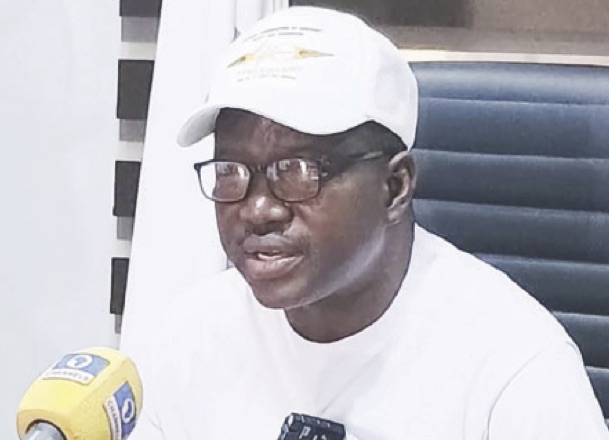
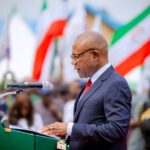






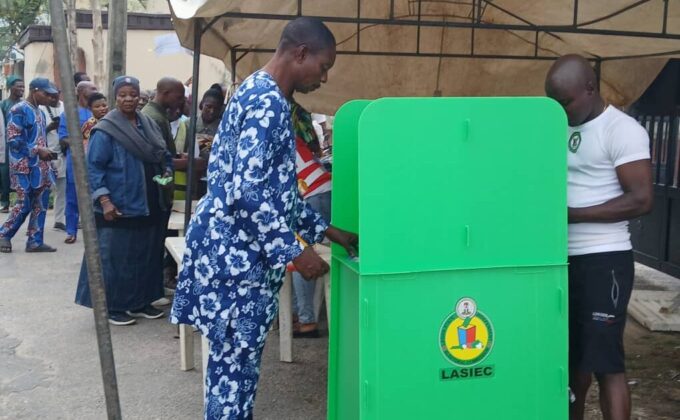



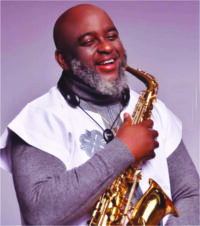
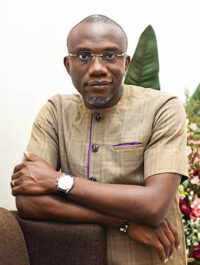

Leave a comment